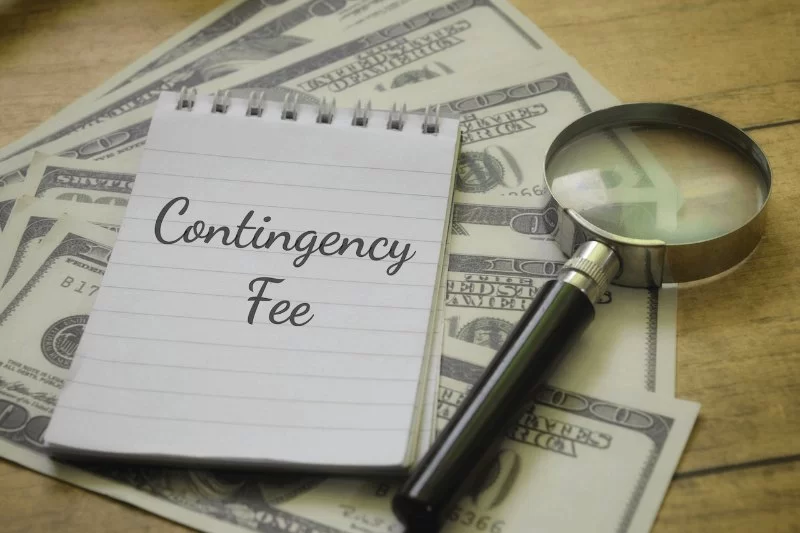What Is a Contingency Fee and When Is It Used?
- Understanding Contingency Fees
- When Is a Contingency Fee Used?
- Benefits of Contingency Fees
- How to Choose a Lawyer with a Contingency Fee
A contingency fee is a type of payment arrangement commonly used in legal cases, where a lawyer's fee is contingent upon winning the case. This means that instead of paying the lawyer an upfront retainer or hourly fee, the lawyer will receive a percentage of the compensation awarded if the case is successful. The contingency fee structure is often used in personal injury, workers’ compensation, and class action lawsuits, among other legal matters.
1. Understanding Contingency Fees
Contingency fees are a common way for clients who may not be able to afford the cost of hiring a lawyer upfront to access legal representation. In this arrangement, the lawyer takes on the financial risk of the case, knowing that if they lose, they will not receive any payment. However, if they win, the lawyer will receive a percentage of the settlement or judgment.
1.1. How Contingency Fees Work
The fee is typically a percentage of the recovery (the amount won in the case). This percentage can vary depending on the type of case and the agreement made with the lawyer. Common percentages range from 25% to 40%, with the percentage increasing if the case goes to trial. The fee is only collected if the lawyer wins the case; if the case is lost, the client does not owe anything for the lawyer's services.
1.2. What Cases Use Contingency Fees?
Contingency fees are commonly used in cases where the client is seeking compensation for damages or injuries. Examples include:
- Personal injury cases, such as car accidents or medical malpractice
- Workers’ compensation claims
- Class action lawsuits
- Product liability claims
- Insurance claims disputes
Now that we know what contingency fees are, it’s important to understand when they are typically used and why they are the preferred option for many clients.
2. When Is a Contingency Fee Used?
Contingency fees are primarily used in legal cases where the client is seeking monetary compensation for a loss, injury, or damage. These types of cases often involve significant expenses for the client, including medical bills or lost wages. A contingency fee structure allows clients to pursue justice without having to pay out-of-pocket for lawyer’s fees.
2.1. Personal Injury Cases
Personal injury lawyers often work on a contingency fee basis. In cases involving accidents, negligence, or intentional harm (such as car accidents, slip and falls, or workplace injuries), the client may be unable to pay the lawyer’s fees upfront. By working on contingency, lawyers take the financial risk and only get paid if they win the case, making it easier for clients to pursue compensation without worrying about upfront legal costs.
2.2. Workers’ Compensation
In workers’ compensation cases, contingency fees are also common. These cases often involve injured workers seeking compensation for medical bills, lost wages, and pain and suffering. Lawyers who handle these types of cases typically work on contingency, making legal representation accessible for workers who may be unable to afford the costs of legal services otherwise.
2.3. Class Action Lawsuits
In class action lawsuits, where a group of people seeks damages for a common grievance, such as defective products or environmental hazards, lawyers often use contingency fees. This allows plaintiffs to join the lawsuit without paying upfront legal fees, knowing they only owe a portion of the settlement if the case is won.
Contingency fees offer several advantages to clients, especially in cases where the cost of hiring a lawyer upfront is prohibitive. Let’s explore the benefits of contingency fees and why they are so popular in certain types of cases.
3. Benefits of Contingency Fees
There are several key benefits to choosing a lawyer who works on a contingency fee basis:
3.1. No Upfront Costs
The most significant benefit of a contingency fee arrangement is that clients don’t have to pay any upfront legal fees. This can be crucial for people who are already financially burdened, especially after an accident or injury. The contingency fee structure makes legal representation more accessible for individuals who might otherwise struggle to afford an attorney.
3.2. Shared Risk
Contingency fees mean the lawyer is taking on a shared risk. If the case is unsuccessful, the client doesn’t owe the lawyer anything. This ensures that lawyers are motivated to work hard on behalf of their clients since their payment depends on the outcome of the case. It aligns the interests of the client and the lawyer, both working toward a favorable result.
3.3. No Financial Burden During Litigation
Throughout the course of litigation, clients don’t need to worry about how they will pay their lawyer. This allows them to focus on recovering and pursuing the best possible outcome for their case, rather than worrying about accumulating legal fees. It can also prevent clients from feeling pressured to settle early for less than they deserve simply because they can't afford continued legal expenses.
Choosing the right lawyer for your case is crucial. Here's how you can ensure that you're making the right choice when selecting a lawyer with a contingency fee arrangement.
4. How to Choose a Lawyer with a Contingency Fee
When selecting a lawyer who works on a contingency fee basis, there are a few important factors to consider:
4.1. Experience and Reputation
Look for a lawyer who has experience in the specific area of law that your case involves. For example, if you're dealing with a personal injury case, choose a lawyer who specializes in personal injury law. Research their reputation, read reviews, and ask for recommendations from others who have had similar legal needs.
4.2. Percentage of Contingency Fee
Lawyers typically charge a percentage of the settlement or award. It's important to understand what percentage the lawyer charges and ensure that it is in line with industry standards. Make sure that all fees are outlined in the contract so you aren't surprised later on.
4.3. Communication and Approachability
Since you will be working closely with your lawyer, it’s crucial to choose someone who is approachable and communicative. Make sure the lawyer is easy to talk to, answers your questions thoroughly, and keeps you updated throughout the process. A good working relationship can make a significant difference in the outcome of your case.
If you're considering a contingency fee arrangement or have questions about your legal rights, visit Fred Miller Lawyer for the best legal advice and services tailored to your needs.


 andy miri attorney
andy miri attorney law offices of dolly z hassan photos
law offices of dolly z hassan photos 1700 lincoln denver
1700 lincoln denver auto accident attorney manassas
auto accident attorney manassas raytsin law firm
raytsin law firm oliver s storch attorney at law new york photos
oliver s storch attorney at law new york photos